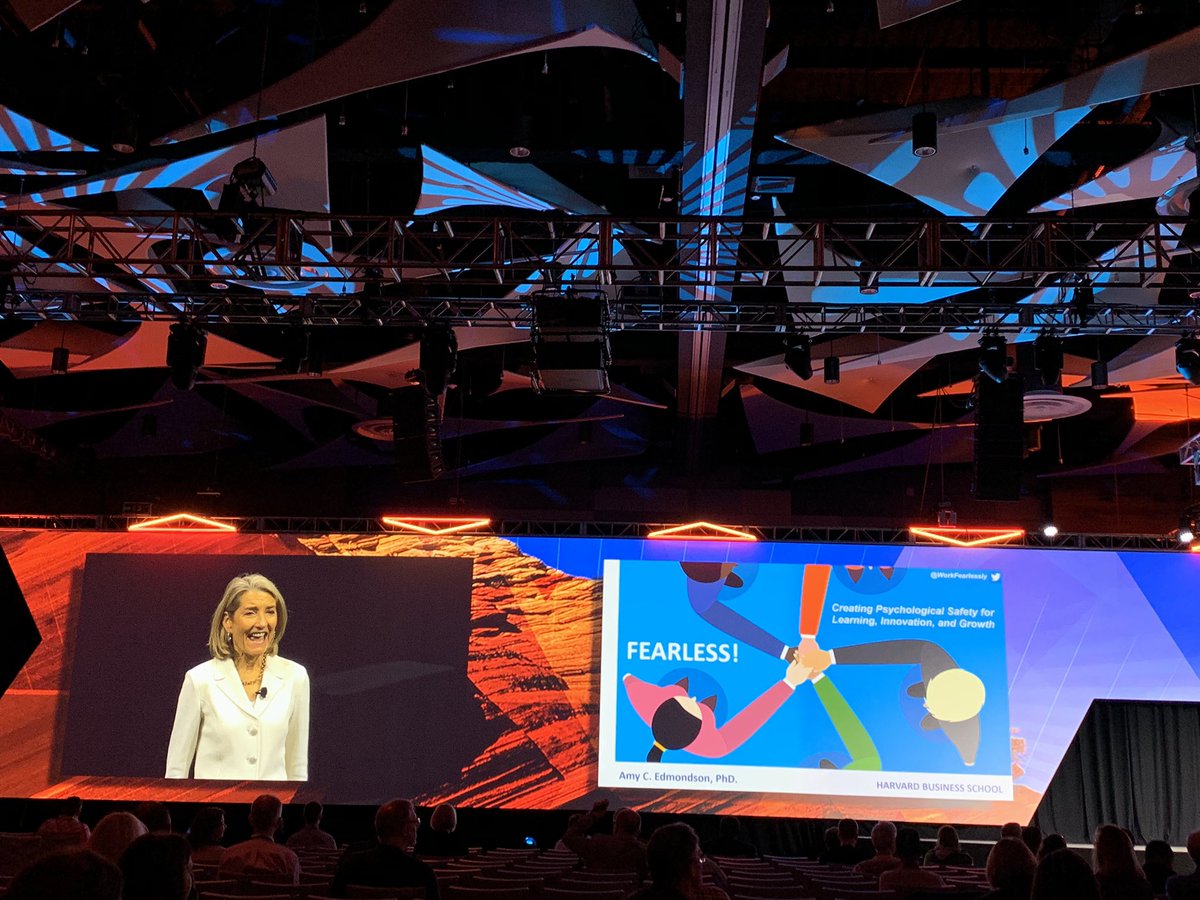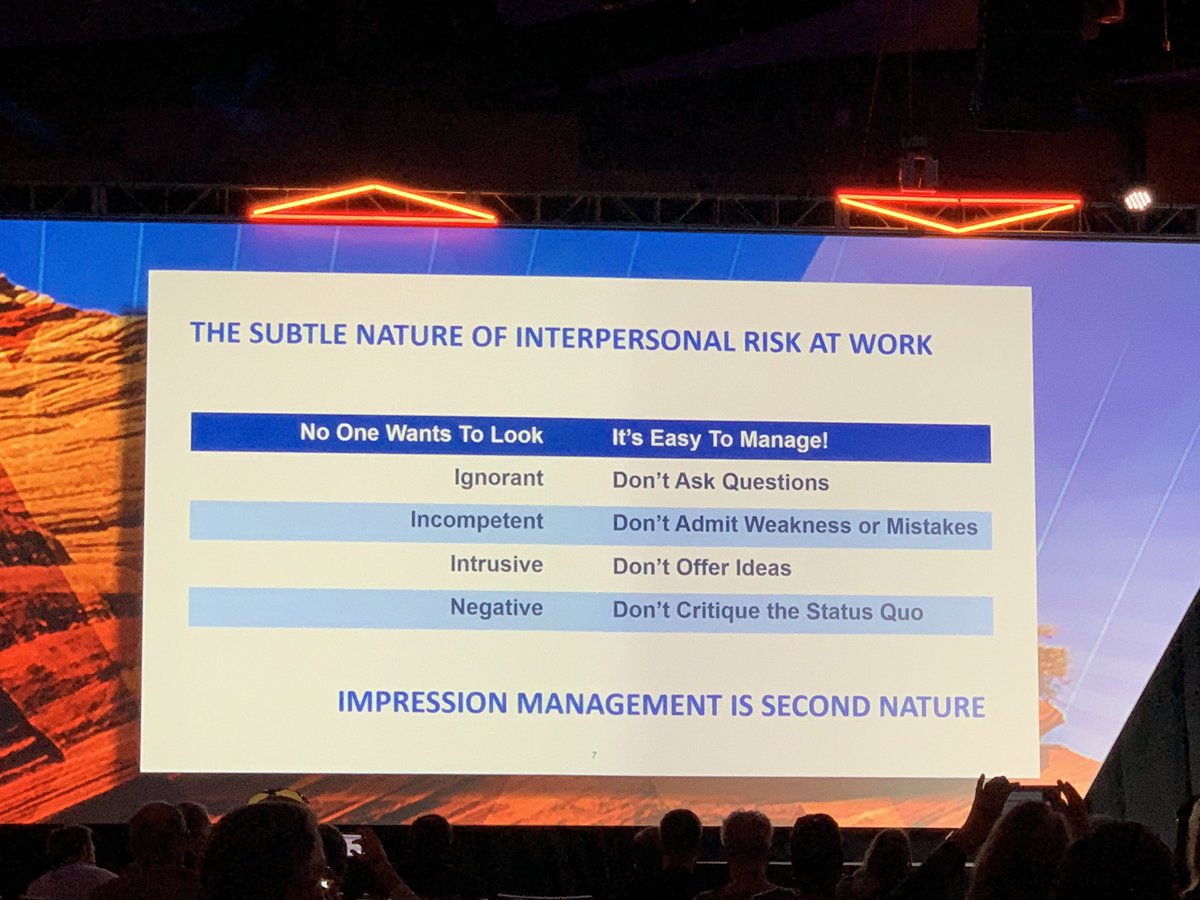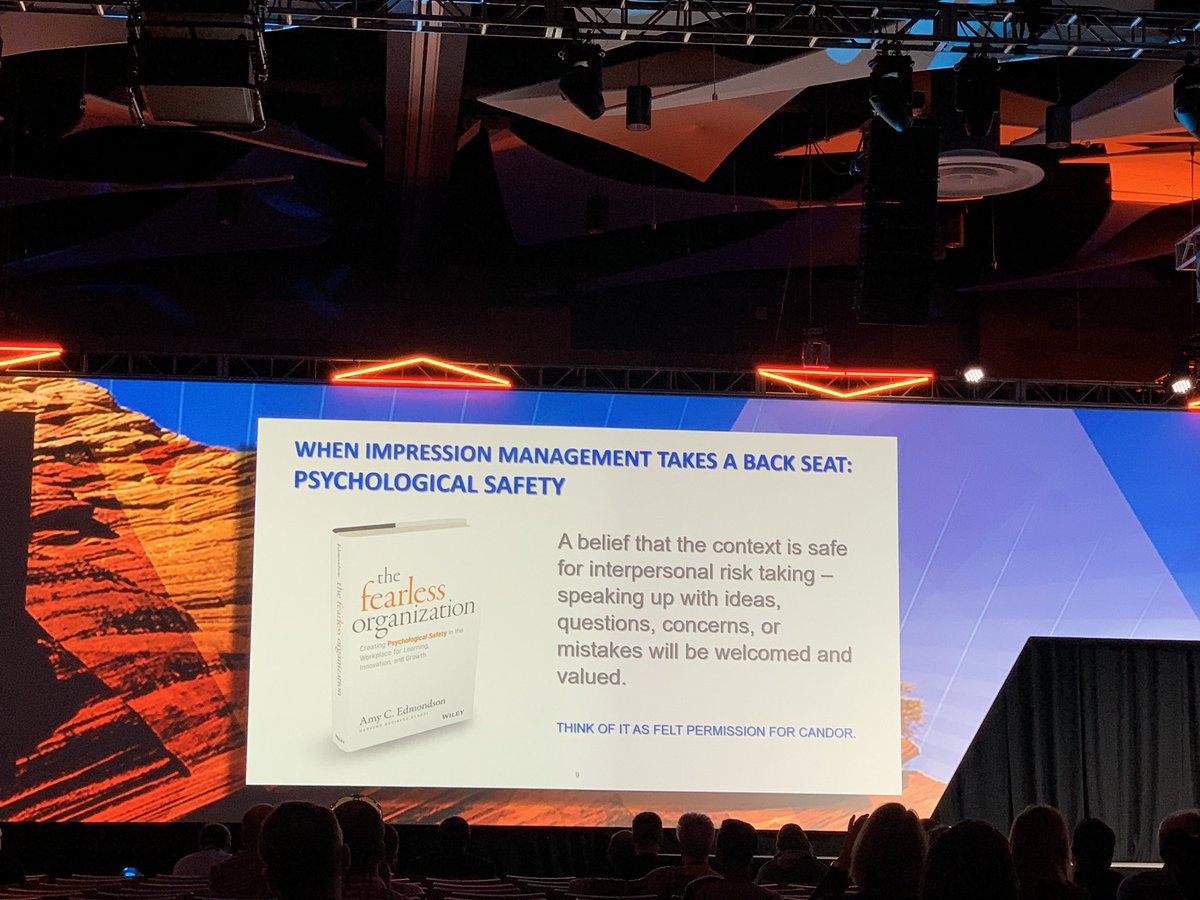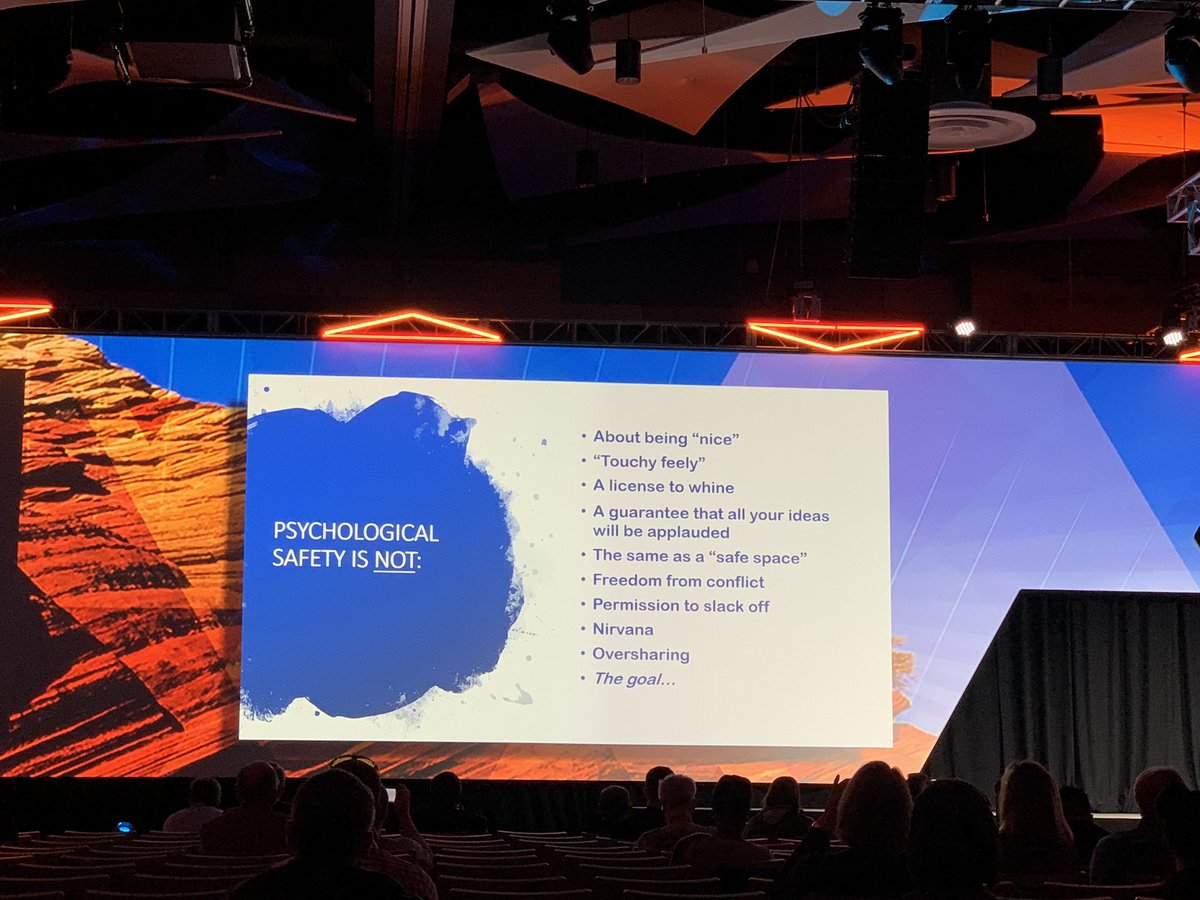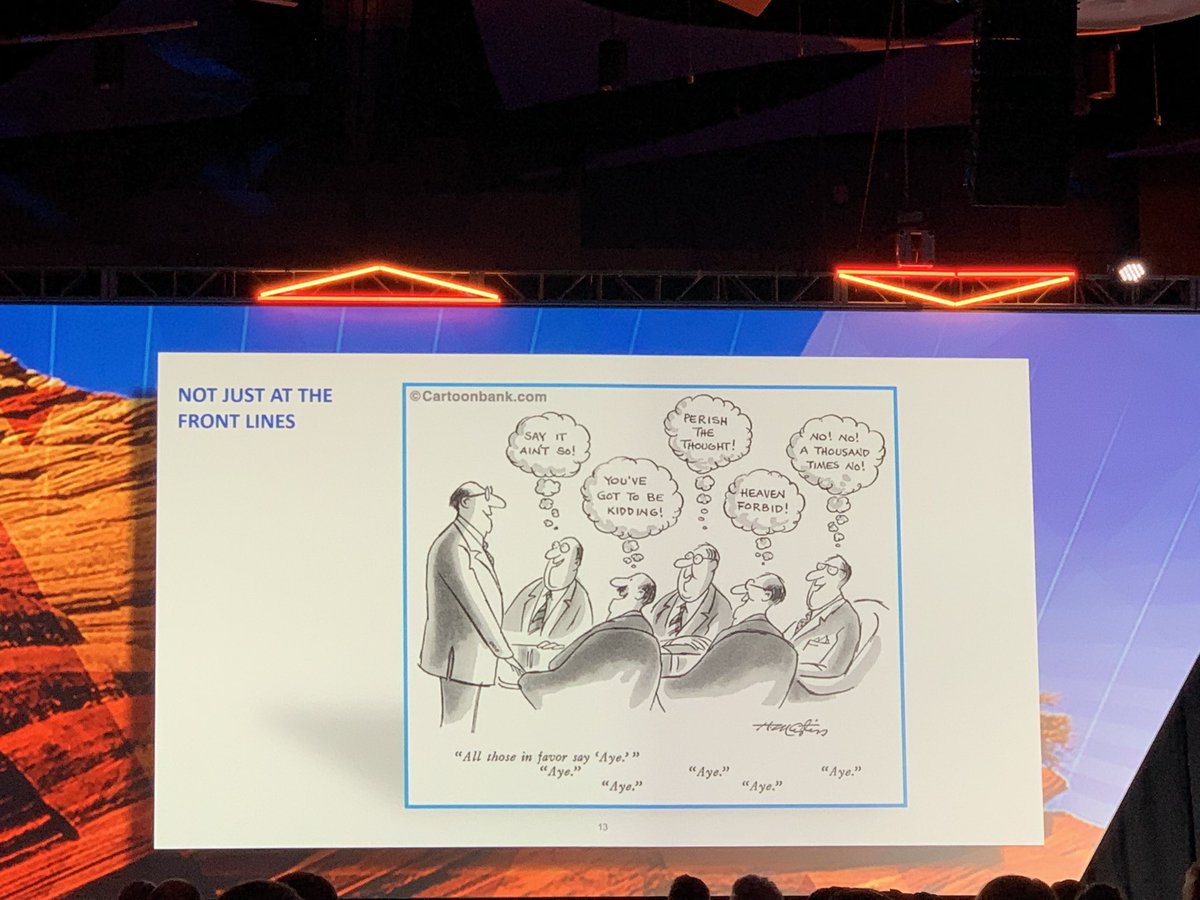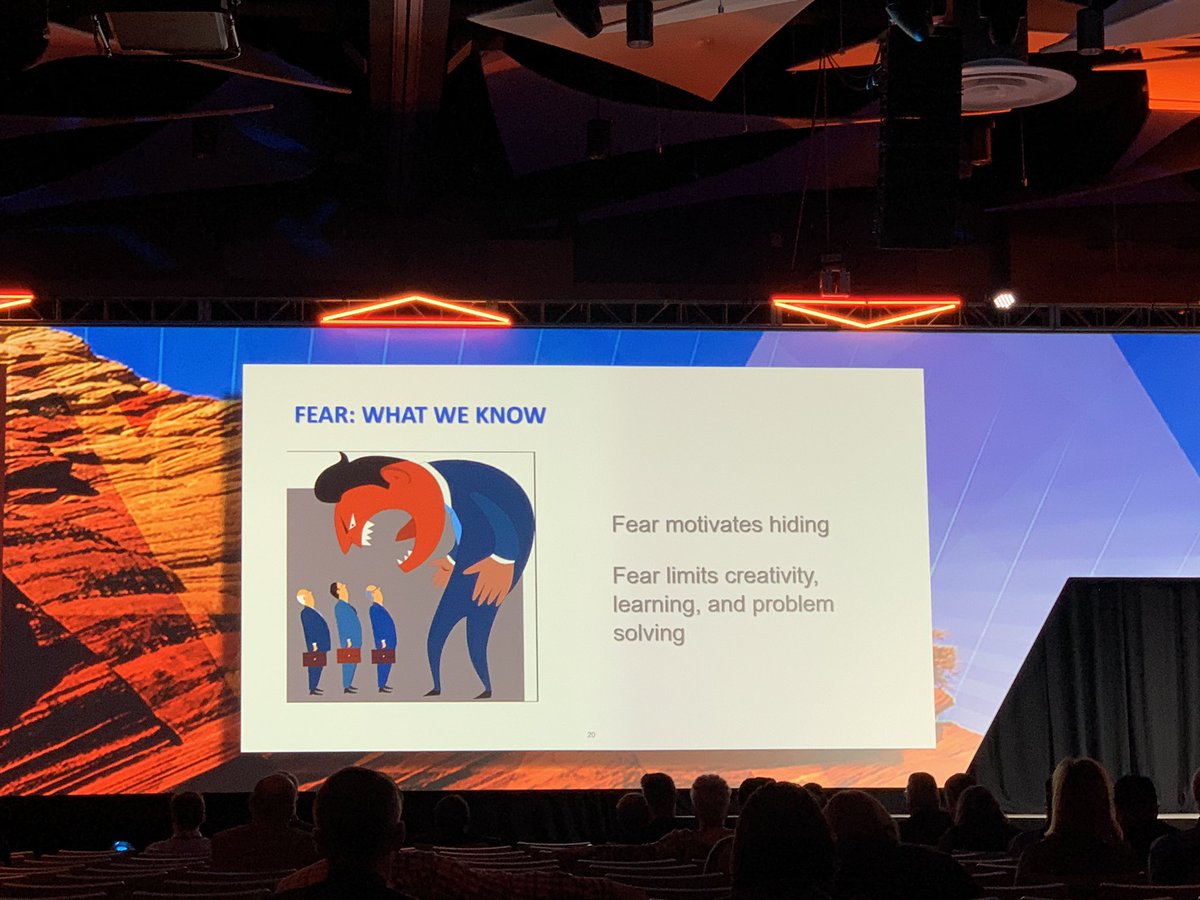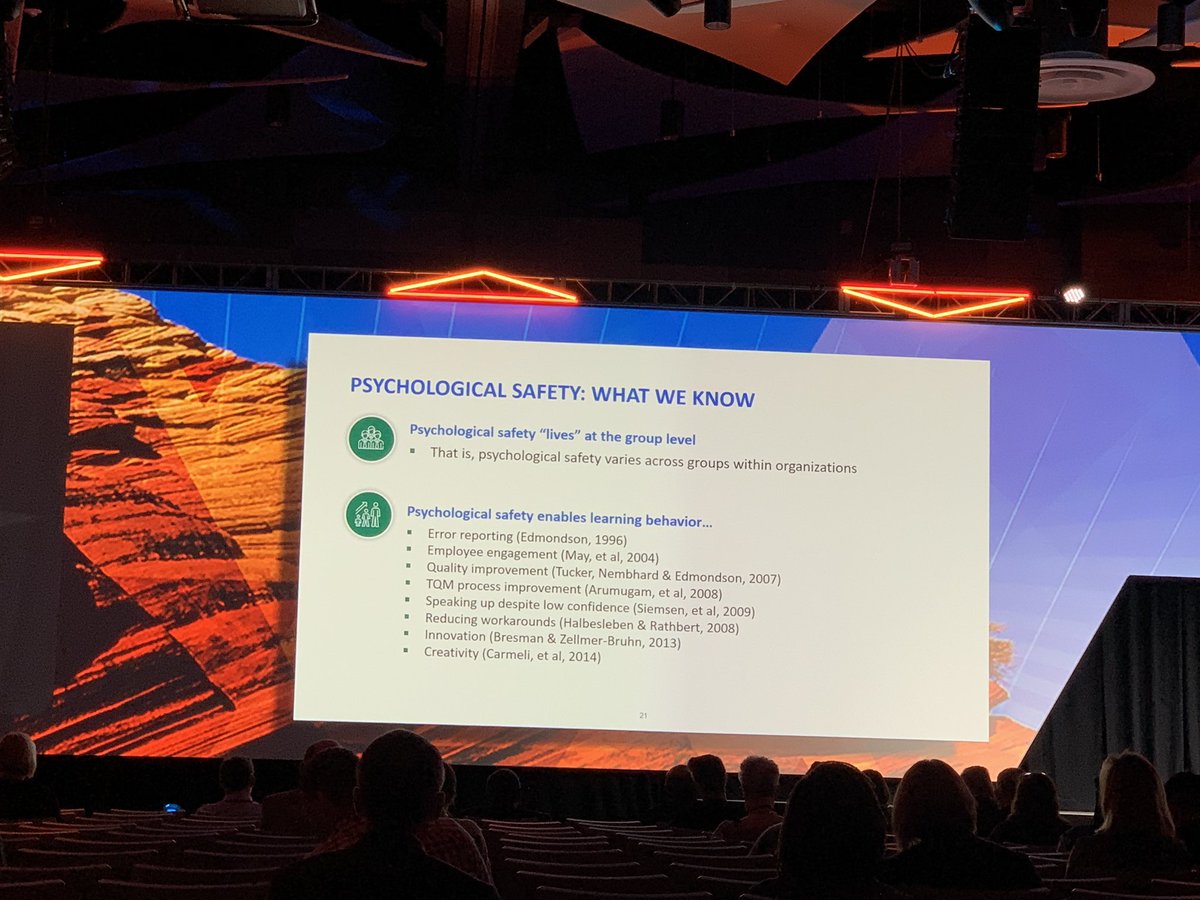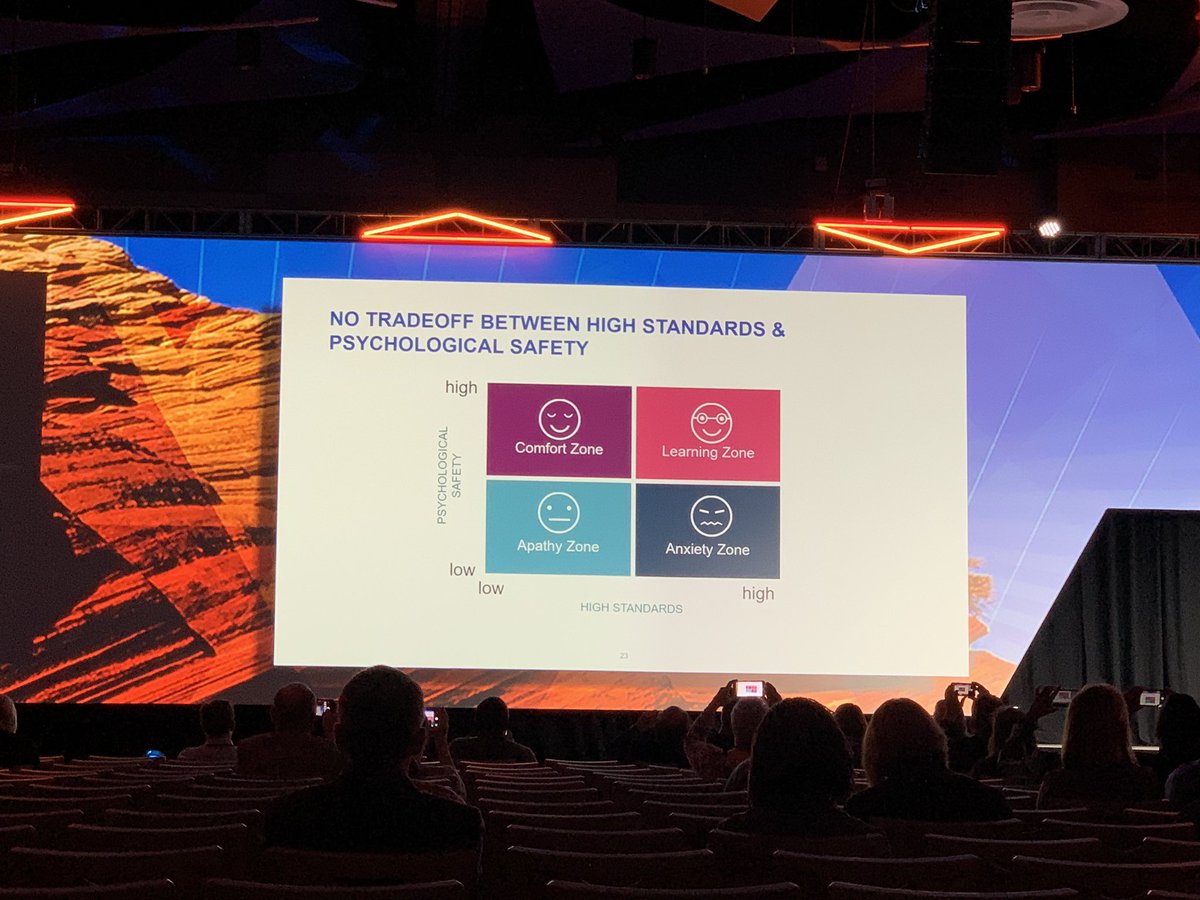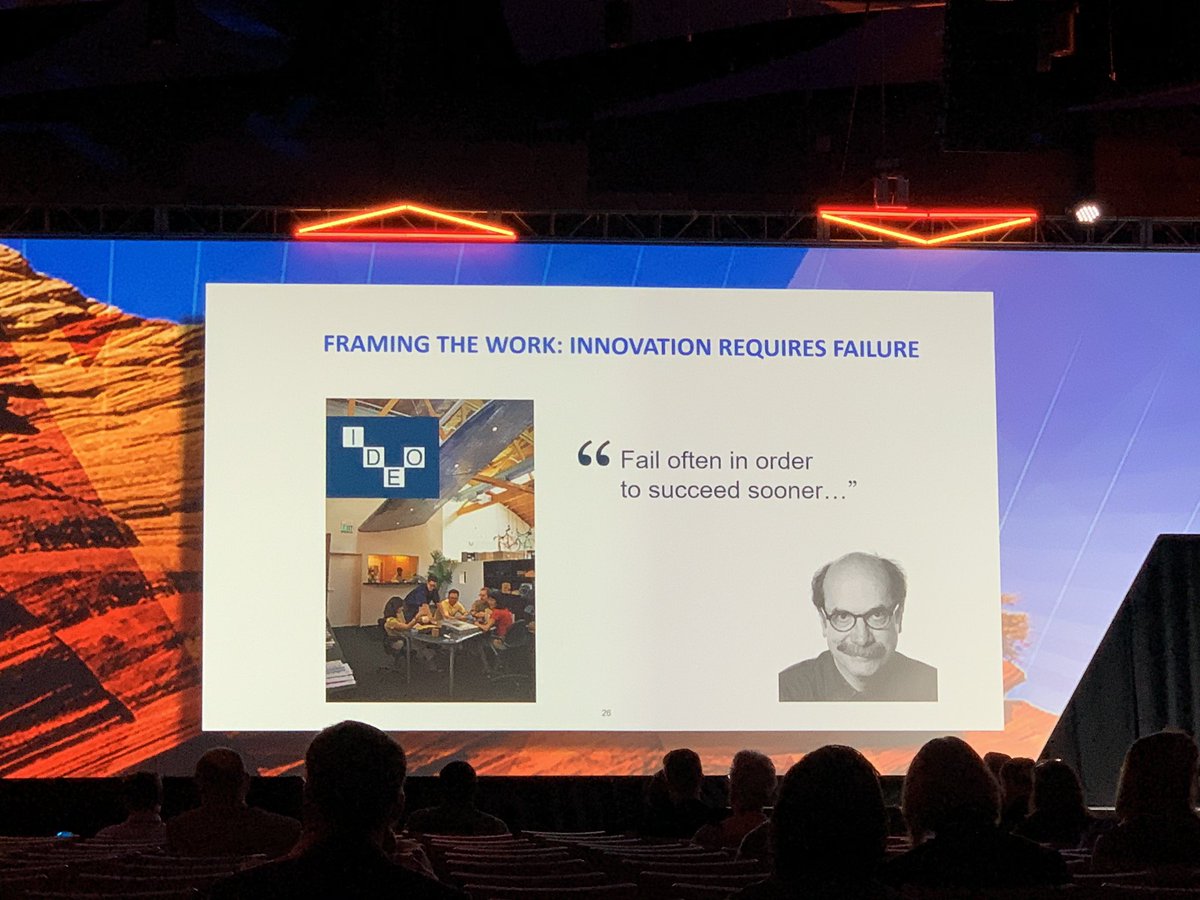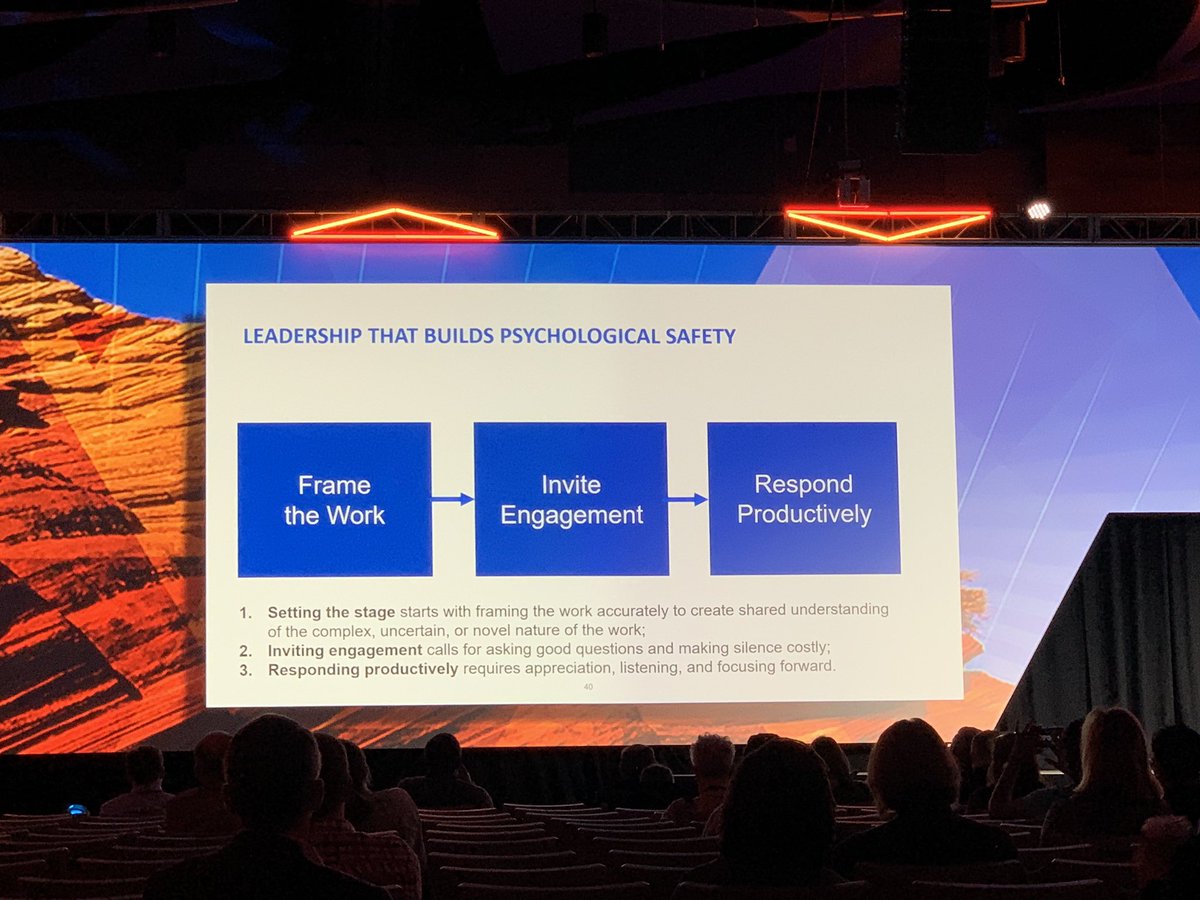Amazing plenary speech about psychological safety from @AmyCEdmondson this morning at #AAMC19. I’ll share some highlights here—it was too good not to! THREAD
1/
1/
She started off with her discovery of psychological safety as an important factor for performance. Here’s part of why it matters: we are all afraid of looking bad, and the easiest way to avoid that is by not taking any risks. Don’t ask questions, don’t offer ideas, etc.
2/
2/
Psychological safety: “a belief that the context is safe for interpersonal risk-taking—speaking up with ideas, questions, concerns, or mistakes will be welcomed and valued.”
This is like permission to speak with candor.
3/
This is like permission to speak with candor.
3/
It is not:
-being nice
-warm and fuzzy
-a safe space
-about whining
-permission to slack off
-oversharing
4/
-being nice
-warm and fuzzy
-a safe space
-about whining
-permission to slack off
-oversharing
4/
Lack of psychological safety can lead to situations like this: no one in the group thinks the proposal is a good idea, but they all vote yes. As @AmyCEdmondson said, even the person thinking “a thousand times no” couldn’t spare a single no for the sake of the organization?
5/
5/
In the absence of psychological safety, “We inadvertently choose self-protection over growth.” We are so busy with impression management and avoiding risk that we don’t make progress.
6/
6/
Some might think fear motivates people—I certainly have seen this false belief in medicine. @AmyCEdmondson says fear does motivate people, but what it motivates them to do is to hide mistakes and failures, limiting creativity, learning, and problem solving.
7/
7/
Psychological safety varies at the level of groups within organizations—one department may have it while another does not.
Psych safety enables:
-error reporting
-employee engagement
-QI
-speaking up
-innovation
8/
Psych safety enables:
-error reporting
-employee engagement
-QI
-speaking up
-innovation
8/
Having psychological safety does not mean having low standards—that would not lead to innovation. Having high standards with low psych safety promotes anxiety in a big way. But having psych safety with high standards allows for learning and progress. We need both.
9/
9/
Leaders can help achieve psych safety by framing the work in a productive way. The CEO of Ideo would say,
“Fail often in order to succeed sooner.”
The CEO of OpenTable embraced imperfection alongside iteration to improve their product.
This framing allows room for innovation.
“Fail often in order to succeed sooner.”
The CEO of OpenTable embraced imperfection alongside iteration to improve their product.
This framing allows room for innovation.
These frames are counterproductive & squash psych safety & innovation. I’m sad to say I see these frames often in healthcare leadership:
-employees are self-interested
-top management knows the issues best
-unity and agreement mean things are going well (dissent not valued)
11/
-employees are self-interested
-top management knows the issues best
-unity and agreement mean things are going well (dissent not valued)
11/
How can leaders do better at inviting employees to engage? Be curious and ask good questions:
-what do others think?
-what are we missing?
-who has a different perspective?
-what is the concern?
Invite thought and give ppl room to respond.
12/
-what do others think?
-what are we missing?
-who has a different perspective?
-what is the concern?
Invite thought and give ppl room to respond.
12/
Then when you hear alarming feedback, you have to be careful to respond in a way that will encourage people to continue to speak up. That kind of feedback must be treated like a gem—after all, feedback is a gift.
13/
13/
So in summary, to build psych safety you have to:
-frame the work to make space for questions and failures
-invite people to be engaged in the process
-respond productively when you hear potentially alarming information
14/
-frame the work to make space for questions and failures
-invite people to be engaged in the process
-respond productively when you hear potentially alarming information
14/
As an aside, when @maren_loe and I were planning our trip to #AAMC19 I said to her, “I would not leave without seeing @AmyCEdmondson’s talk.” I’m so glad we both stayed and learned from her today! Hope those who couldn’t make it enjoy this thread.
Fin/
Fin/

 Read on Twitter
Read on Twitter